Public-Private Partnership to Ensure Safe Birth for Vulnerable Ethnic Women during COVID-19 Pandemic
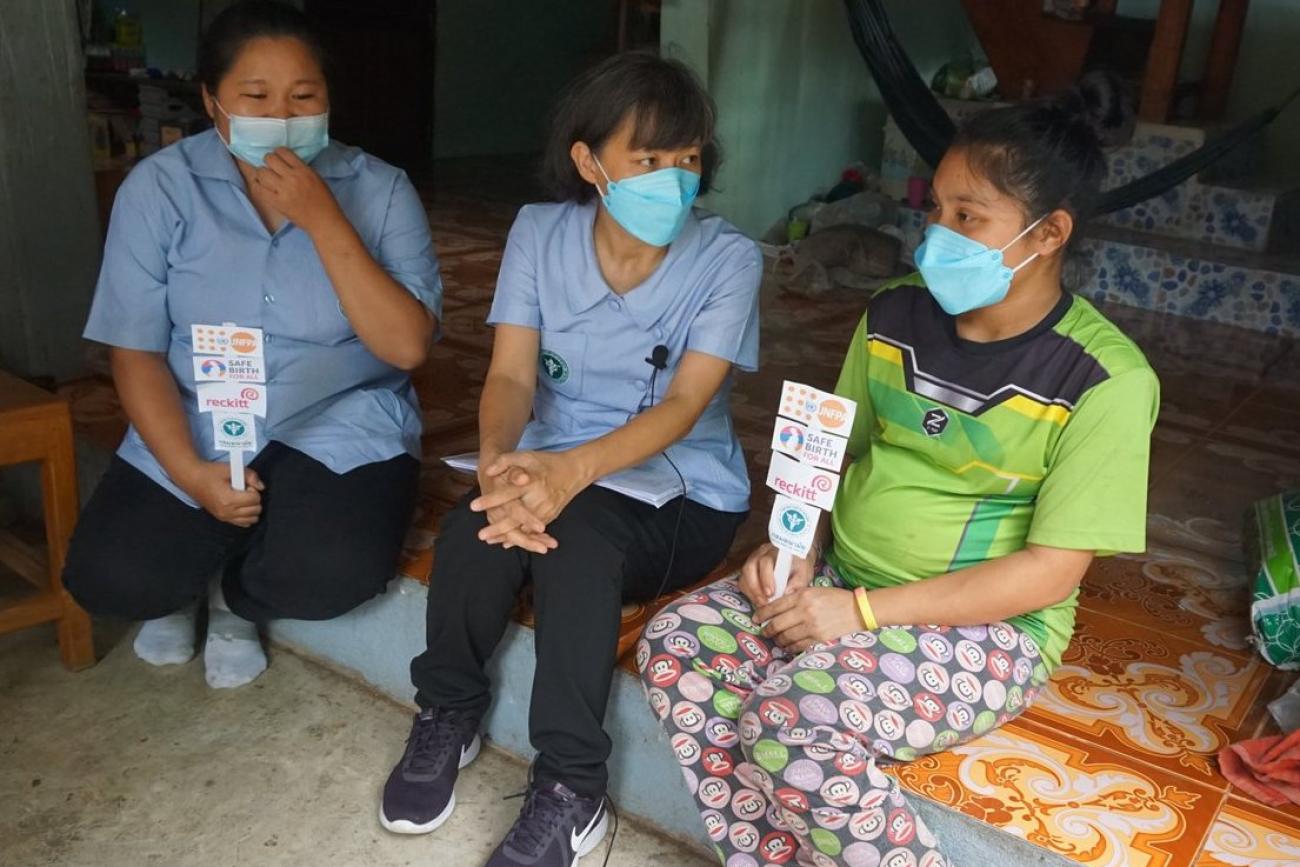
Thailand has the fourth lowest number of preventable maternal deaths in Southeast Asia, coming after Singapore, Malaysia and Brunei[i]. According to the Thai Ministry of Public Health preventable maternal deaths have declined from 26.70 per 100,000 live births[ii] in 2016 to maternal mortality ratio of 23.10 per 100,000 live births in 2020. Universal Health Coverage in Thailand includes maternal care for all its citizens, however, the number of visits to health care services during the first 12 weeks of pregnancy among young mothers and pregnant women living along the Thai-Myanmar border is fairly low. Based-line studies by Thailand’s Department of Health point out that women and girls from ethnic minority backgrounds, prefer to deliver their babies at home which might put both mothers and new-borns at higher risks when complications happen during and after the birth delivery. To ensure reduced preventable causes among ethnic minority pregnant women, UNFPA has partnered with Reckitt and the Thai Department of Health, Ministry of Public Health to implement a project called ‘Safe Birth for All’ amidst the COVID-19 pandemic in the second half of the year 2020.
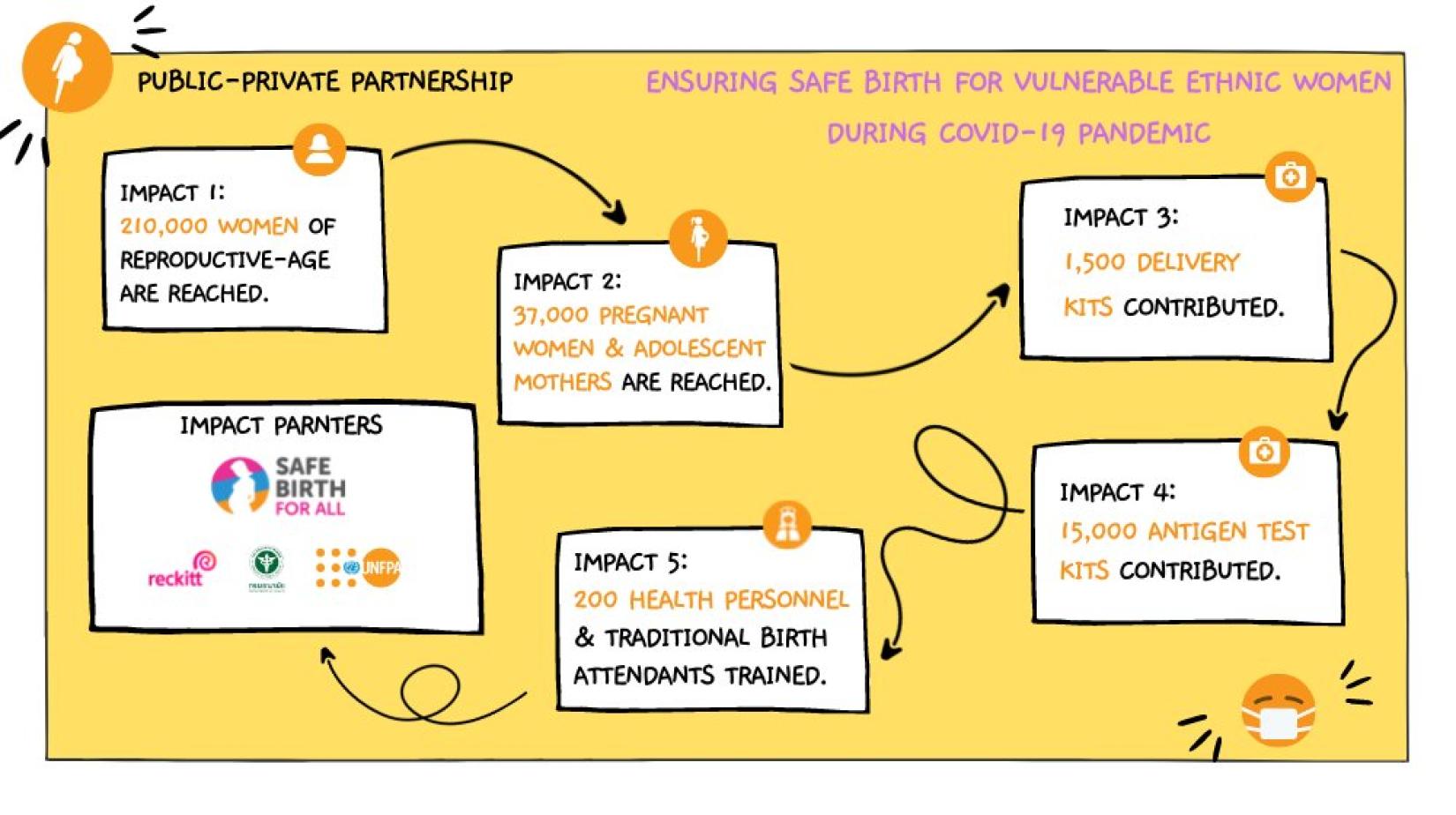
One cannot deny that the Thai Universal Health Coverage provides comprehensive health services including maternal health and sexual and reproductive health to everyone in Thailand. Even under this ambitious coverage programme, vulnerable women and young people living along the Thai-Myanmar border still face challenges in accessing services and care due to geographical and cultural obstacles which make them unable to make informed decisions.
This public-private partnership project of ‘Safe Birth for All’ aims to reduce preventable causes of maternal death by encouraging ethnic young mothers to increase their visits to health facilities nearest their house, such as Primary Health Care Centres, Sub-District Health Promotion Hospitals District or Provincial Hospitals during their first 12 weeks of pregnancy. According to the Thai maternal health policy, the Department of Health is determined to prevent complications that could cause deaths of both mothers and new-borns. The project has contributed to this national policy as well as one of UNFPA’s transformative results that is to ensure reduced maternal death by emphasizing safe birth and by encouraging women and their family members to give births at the available health facilities. By doing that, health personnel and health networks including health staff, health volunteers and traditional birth attendants receive refresher training sessions on early detections of pregnancy complications and on how to provide information on challenges of birth delivery at home and safe delivery at hospitals to both the mothers and family members so they could perform an informed decision. In case traveling to a hospital for a birth delivery might not be possible for many reasons including geographical obstacles, heavy rains or due time that happens at night, the project ensures safe births by providing safe delivery kits to trained traditional birth attendants living in these communities. However, during the COVID-19 pandemic, this decision of birth delivery at a hospital might not be easy. Some families worry that delivery at the hospital put pregnant women at risk of getting infected of COVID-19.
To underline the importance of the UNFPA, Reckitt and Thai Ministry of Public Health partnership in reducing maternal mortality among ethnic minorities, two beneficiaries from the project tell their stories.
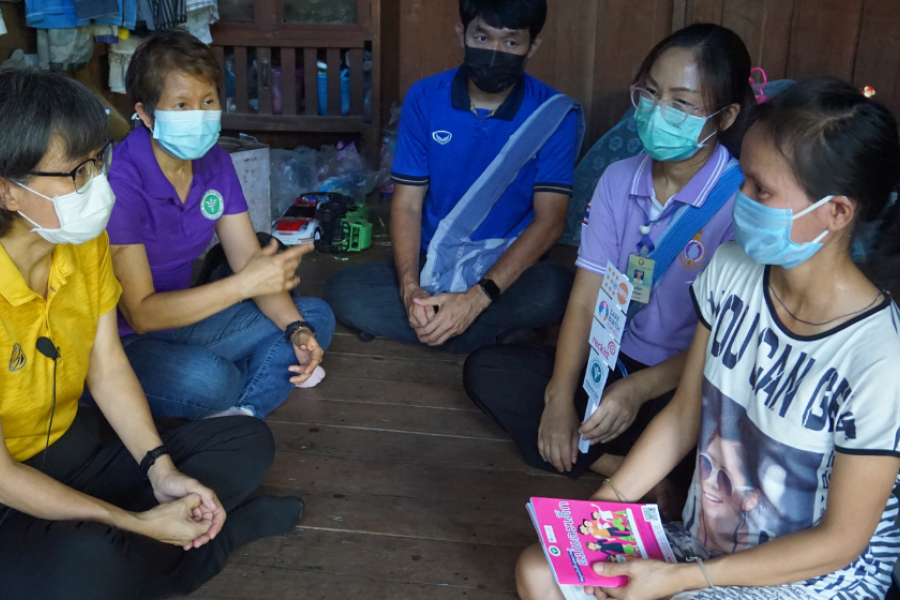
Mei, aged 17, is having her first pregnancy. Shy of sharing with others that she is pregnant, she came across advice to have regular neonatal care from her friend in the same community who happens to work at the sub-district hospital. She, though, wants to deliver at home with assistance from her mother-in-law who is also a traditional birth attendant. This is also what her husband insists on. This is always the case for many ethnic pregnant women who receive regular neonatal care but decide to deliver at home, especially during the COVID-19 pandemic. The family is concerned about getting infected from the pandemic by delivering at the hospital.
On the other hand, La-ong worked in Bangkok for more than ten years but now opted to return home to stay with her ageing parents. She is in the early months of her second pregnancy, even though she originally planned to have only one child. Receiving neonatal care regularly, she is now very well disciplined in taking care of her nourishment, ensuring her baby’s health. She is well aware of taking food containing vitamins and intends to deliver at the district hospital at Mae Sariang even though she lives quite far away. She recounts that she did not have sufficient energy while delivering her first baby. The doctor used vacuum extraction to assist her. This really endorses her confidence to deliver her baby at the district hospital. She is concerned about a possible severe Postpartum Hemorrhage. However, if her pregnancy is due during odd hours and needs to be delivered at the sub-district hospital nearer her home, she is confident in all medical crews there. She answered with tearful eyes that she has been witnessing dedication and hard work in service provision by all medical personnel.
With this determined decision, it is necessary that the medical personnel have to work closely with traditional birth attendants. Ma-aeh has been a traditional birth attendant for more than 40 years in Pohsor sub-district, Mae Sariang District, Mae Hong Son province, a mountainous town bordering Thailand and Myanmar. She is one of 50 traditional birth attendants that attend refresher midwifery training provided by the 1st Health Region Office, Department of Health, Ministry of Public Health. This is one of the activities under the ‘Safe Birth for All’ project’ by the Department of Health under the Ministry of Public Health, Reckitt and UNFPA to deliver safe birth for all pregnant women living in the remote mountainous areas up north of Thailand.
She recounts that she has assisted in numberless birth deliveries. The most recent delivery she assisted was in October last year. She decided to be the traditional birth attendant as it makes her happy to see safe births within her community. Out of many cases, approximately 40 cases were stillbirths and Postpartum Haemorrhage. Two were the most severe cases of bleeding. To help women facing this painful condition, she has been using some traditional approaches. Attending the refresher workshop really enables her to have medical knowledge and skills to assist women in safe delivery and save the lives of pregnant women facing severe conditions while delivering.
Trainings are very essential for traditional birth attendants. Ma-ou, another birth attendant in Sala Chaing Tong sub-district, Ma Sariang district, Mae Hong Son province shared that among 30 pregnant women she assisted in birth delivery, all were safe thanks to fundamental medicines and delivery kits. These are very critical to save the life of a mother and a child when traditional birth attendants face complications while assisting birth delivery cases at homes.
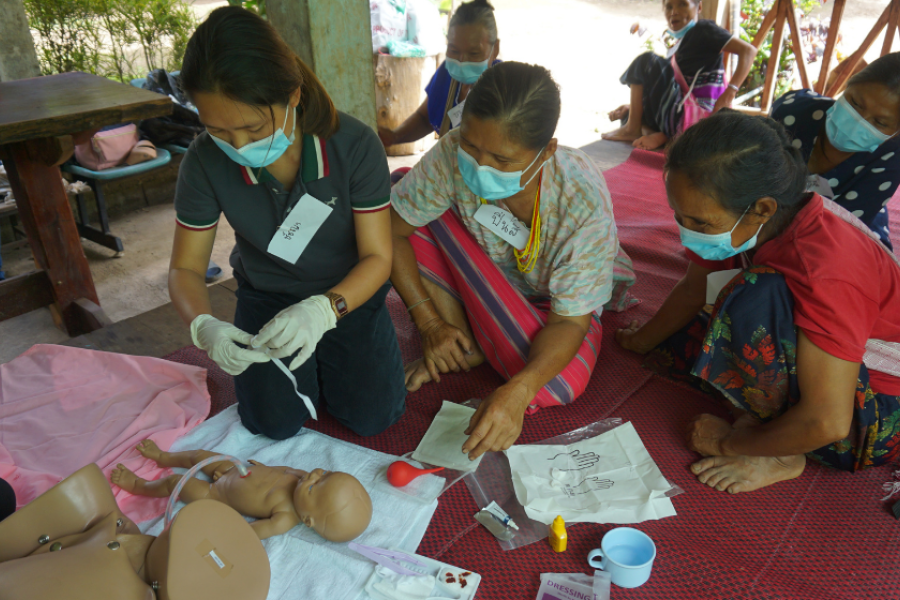
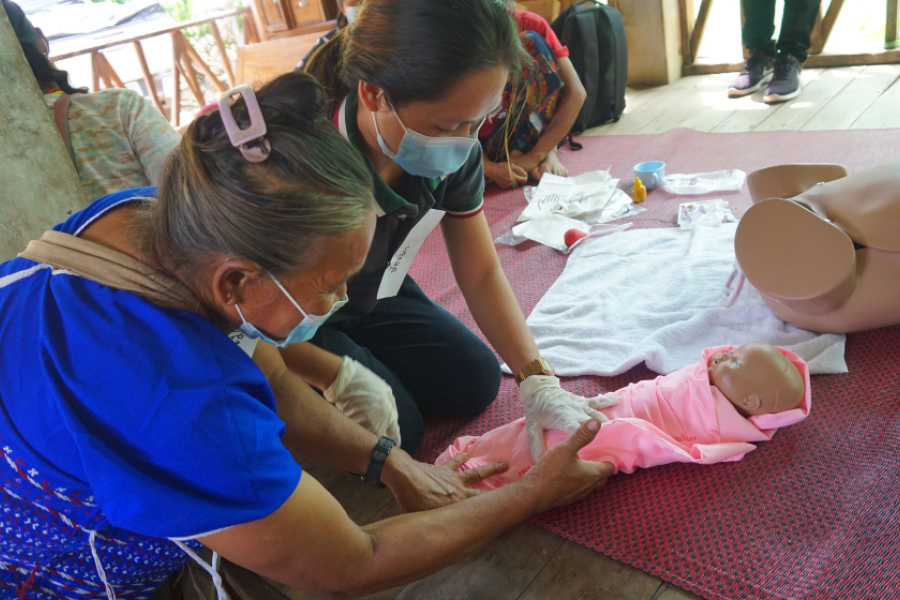
Since the start of this partnership in mid-2020, up to 200 health personnel including nurses, health workers, health volunteers and traditional birth attendants are trained. Approximately 1,500 delivery kits were distributed to ensure safe births at homes. Approximately 15,000 sets of Antigen Test Kit (self-test) for COVID-19 detection were also distributed to vulnerable pregnant women to ensure their life is not at risk of being infected of COVID-19, even delivering birth at home. The initiative has reached up to 210,000 reproductive-age women and approximately 30,700 pregnant women and adolescent mothers both Thai and non-Thai in eight districts in Chiang Mai, Tak, and Mae Hong Son provinces. This partnership really reflects the determination of Thailand’s Department of Health, Reckitt and UNFPA to ensure that pregnant women, even living in the farthest area, have a safe pregnancy and delivery and are not left behind.
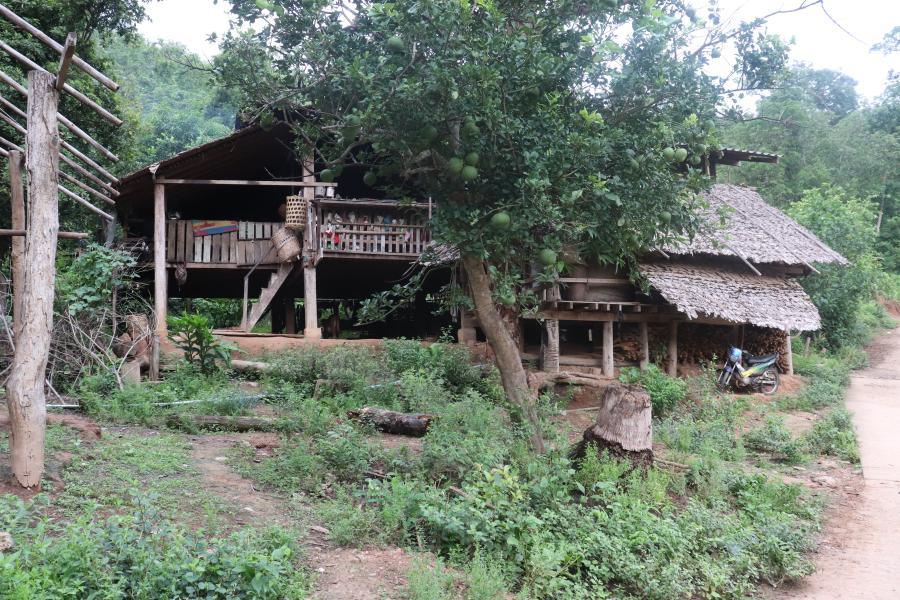
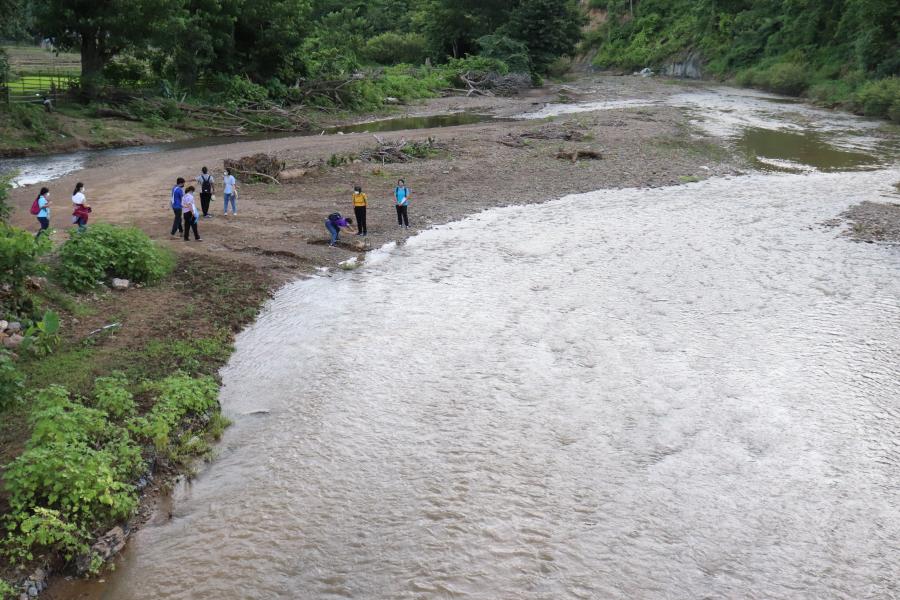
[i] World Bank, https://data.worldbank.org/indicator/SH.STA.MMRT?locations=TH-Z4&view=map
[ii] Dashboard of the Thai Ministry of Public Health: https://dashboard.anamai.moph.go.th/dashboard/mmr/index?year=2016
Original article published on UNFPA Thailand.


